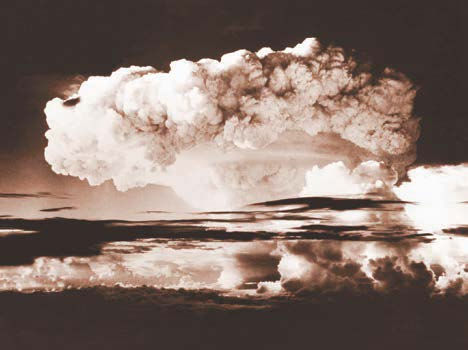The Emperor Returns: February 26, 1815
- Catholic Textbook Project
- Feb 19, 2021
- 3 min read
This text comes from our book, Light to the Nations II: The Making of the Modern World.
Almost immediately after arriving on Elba in May 1814, Napoleon set to work, reforming the government and improving the material conditions of his little island empire. That his domain was but a miniscule portion of his once vast empire seemed of no importance to him; he worked as hard on Elba as if it were a thousand times bigger than it was. Napoleon seemed to have no regret for having lost an empire only to gain an island.

Nor did anyone, it seems, detect his real intentions. But for a chosen few—the 26 Imperial Guardsmen who had accompanied him—no one foresaw his departure from Elba on that night of February 26, 1815. The ship carrying Napoleon and his men was able to escape the notice of the British vessels that patrolled the island coasts. Five days after setting out from Elba, Napoleon landed at Cannes on the southern coast of France. That same night, he and his men began their journey toward Paris.
Imagine the joy of the people of southern France when they heard their emperor had returned! As he moved north, great crowds followed him, promising to accompany him all the way to Paris. But Napoleon urged them to return to their homes. He wanted only soldiers, he said. To the soldiers, he declared, “We have not been conquered . . . you will be the liberators of the country.”
Napoleon first met resistance near Grenoble, about 200 miles north of Cannes. Guarding the approach to the city, a battalion of the royal army withstood the emperor’s force (grown to 1,100 men). With white cockades in their caps, their guns at the ready and bristling with bayonets, the royal soldiers prepared to fire while, with his guard, Napoleon was approaching. Then, commanding his own men to halt and reverse arms, Napoleon by himself took a few more steps forward—until he stood within 15 yards of the enemy. Opening his great gray cloak and baring his breast to the soldiers, Napoleon cried, “If there is a soldier among you who is willing to kill his Emperor, let him do it.”
Silence, then joyous shouts. “Long live the emperor!” the soldiers cried. Tearing off their white cockades—and some pulling out soiled tricolored cockades from inside their caps, where they had been concealed—the men of the royal battalion knelt before Napoleon while their commander offered the emperor his sword.

Such expressions of devotion and joy accompanied Napoleon from Grenoble to Lyons, and from Lyons to Fontainebleau, where he arrived on March 19, 1815. The same day, a Paris newspaper reported that “His Imperial Majesty is expected at the Tuileries tomorrow, the anniversary of the birth of the King of Rome.” Napoleon could enter the capital city and even the royal palace with ease, for Louis XVIII had fled Paris on the day Napoleon entered Fontainebleau. Napoleon was again master of France.
Over the next “100 Days,” Napoleon set about solidifying his power over France. He later said that the march from Cannes to Paris was the happiest period in his life; but now, in power, he seemed to grow sad. Though most of France seemed to welcome him, royalists and Liberals both were not pleased and began hatching plots against the emperor. Then there was Napoleon’s failure to make peace with the allies. He had offered to respect the boundaries of France drawn up by the Congress of Vienna if it would recognize his government; but the allies ignored him and resolved on war. Perhaps Napoleon’s greatest sorrow, however, was the Austrian court’s refusal to return his son to him. And very bitter too was the news that Empress Maria Louisa had sworn never to see Napoleon again.
Though sorrow had seemed to rob Napoleon of some of his old energy, he did not neglect preparations for the war he knew would come. By June, he had gathered an army of 200,000 men. On June 12, Napoleon left Paris to lead this army against the Seventh (and last) Coalition of his foes. They had gathered an army of 500,000 in Belgium in order to rid Europe, once and for all, of Napoleon Bonaparte.
Terrors of the Elf King
In 1815, the German Romantic composer, Franz Schubert, set a poem by Johann Wolfgang von Goethe to music. This poem, Der Erlkönig ("The Elf King") tells of a father riding through the night with his small, ailing son. while the Elf King seeks to lure the child to himself. The child's terror affects the father who, despite his growing horror, seeks to calm his son. The father's haste and assurance, however, cannot contend with the Elf King, whose blandishments soon resolve into threats and, at last, force. This performance of Der Erlkönig is sung by the late, great German baritone, Dietrich Fischer-Dieskau.


